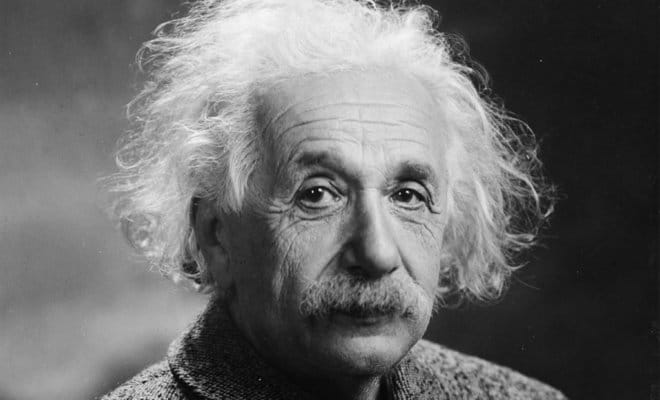India
Climate Hampers Thinking Ability of Indians, Albert Einstein Wrote in Journal

Albert Einstein
Photo: Wikipedia
Einstein observed that Indians were “biologically inferior” in his diary entries written in 1922.
Physicist Albert Einstein has been long known for what he said at the first American college that give degrees to black people in 1946: “Racism is a disease of white people.”
However, the recent publishing of his diary entries written during the Nobel Prize-winning scientist’s Asia tour show that he may have had traces of the same disease. The diary entries reveal Einstein saying that Indians were “biologically inferior” and were hampered by the subcontinent’s climate that “prevented them from thinking backward or forward by more than a quarter of an hour,” India Today reported. The diary entries cover a time span between October 1922 and March 1923, when Einstein was travelling to the Indian subcontinent, China, Japan, Palestine and Spain.
In these entries, Einstein makes observations that are “in contrast to the public image of the great humanitarian icon,” Ze’ev Rosenkranz, the assistant director of the Einstein Papers Project at the California Institute of Technology and the editor of a book that compiles Albert Einstein’s travel diaries, told The Guardian.
“[Einstein] also believes that ‘the climate prevents them from thinking backward or forward by more than a quarter of an hour,’ an attitude that reveals both Einstein’s belief in geographical determinism and in the Indians’ alleged intellectual inferiority,” Rosenkranz writes in the introduction of the book, which compiled Einstein’s travel diaries. Einstein has also attributed the “alleged stoicism of the Indians he encounters to geographical determination [by asking]: ‘Wouldn’t we too, in this climate, become like the Indians?’.”
Saying that the scientist’s comments about Indians, Chinese and Japanese display a belief that is “a clear hallmark of racism,” Rosenkranz revealed that Einstein said: “It would be a pity if these Chinese supplant all other races” and “I don’t understand what kind of fatal attraction Chinese women possess which enthrals the corresponding men to such an extent that they are incapable of defending themselves against the formidable blessing of offspring.”
While Rosenkranz conceded that Einstein, a Jew who fled Nazi Germany during the rising anti-Semitism, may have changed his views later on in life, he told the Washington Post: “It would be easy to say, yes, he became more enlightened [but] One should emphasize the different elements and contradictory elements in the statements that he made and in his personality.”
Rosenkranz added: “Einstein’s diary entries on the biological origin of the alleged intellectual inferiority of the Japanese, Chinese, and Indians are definitely not understated and can be viewed as racist – in these instances, other peoples are portrayed as being biologically inferior, a clear hallmark of racism.”




You must be logged in to post a comment Login